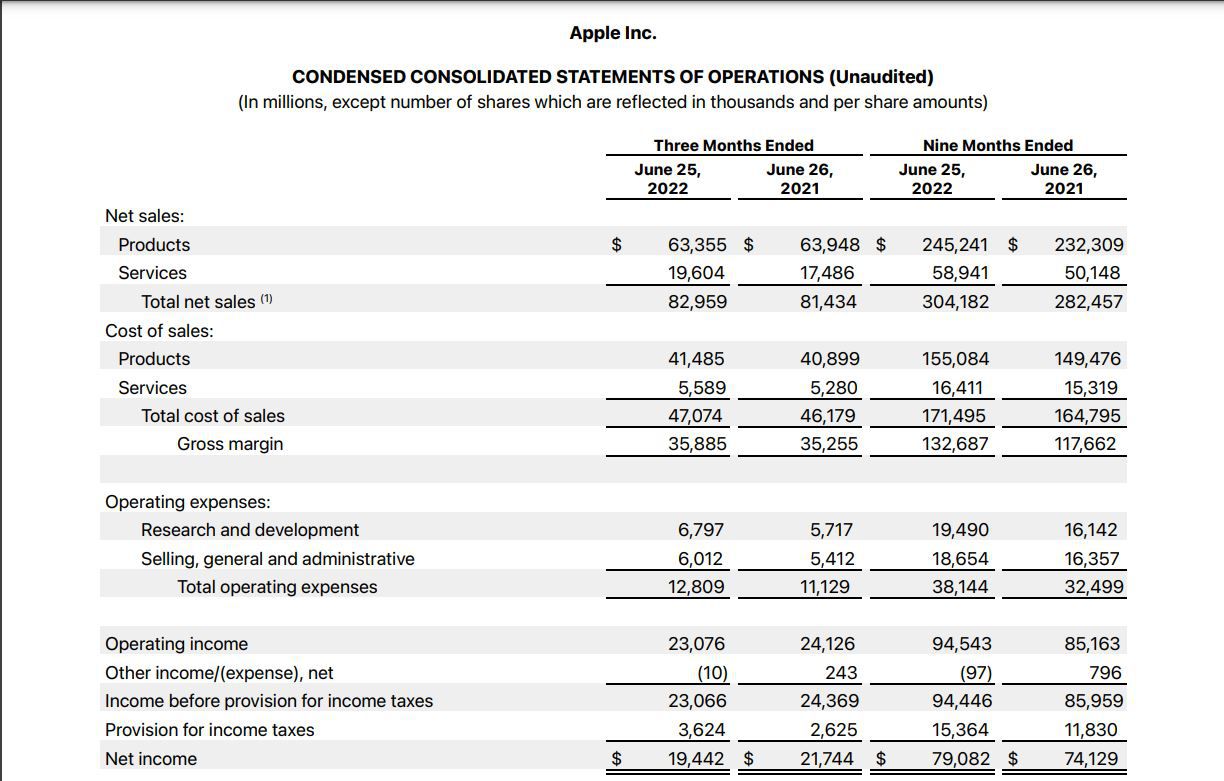

Finance
What Is A Share Savings Account
Modified: January 16, 2024
Learn all about share savings accounts and how they can help you manage your finances effectively. Discover the benefits and features of this popular financial tool.
(Many of the links in this article redirect to a specific reviewed product. Your purchase of these products through affiliate links helps to generate commission for LiveWell, at no extra cost. Learn more)
Table of Contents
Introduction
A share savings account is a type of deposit account offered by credit unions. It is designed to help individuals save money and earn interest. Share savings accounts are similar to traditional savings accounts offered by banks, but there are a few key differences that make them unique.
One of the key differences is that share savings accounts are typically offered by credit unions, which are member-owned financial institutions. This means that when you open a share savings account, you become a member of the credit union and have a say in how it is run. Unlike banks, which prioritize profit, credit unions are not-for-profit organizations and focus on serving their members’ best interests.
Another difference is that share savings accounts often have higher interest rates compared to traditional savings accounts. This allows individuals to earn more on their savings over time. Additionally, share savings accounts are often insured by the National Credit Union Administration (NCUA), just like the Federal Deposit Insurance Corporation (FDIC) insures bank deposits. This provides an extra layer of security for account holders.
In this article, we will explore the definition of a share savings account, how it works, the benefits of having one, how to open an account, factors to consider when choosing a share savings account, and tips for managing it. By the end, you will have a comprehensive understanding of this type of account and be better equipped to make informed financial decisions.
Definition of a Share Savings Account
A share savings account is a type of financial account offered by credit unions. It is specifically designed to help individuals save money and earn interest on their deposits. When you open a share savings account, you are essentially becoming a member of the credit union, which grants you certain benefits and privileges.
Unlike traditional savings accounts offered by banks, share savings accounts are exclusive to credit unions. This means that you must meet the eligibility requirements and become a member of the credit union before being able to open a share savings account.
The name “share savings account” stems from the fact that by opening the account, you are purchasing a share of ownership in the credit union. This distinction sets it apart from other types of savings accounts. As a shareholder, you have the right to participate in the decision-making processes of the credit union and may be eligible to vote in annual elections or serve on the board of directors.
Share savings accounts often require a minimum deposit to open, typically a small amount ranging from $5 to $25, which signifies your commitment to becoming a member of the credit union. However, once the account is opened, you can deposit additional funds at any time.
The primary purpose of a share savings account is to encourage individuals to save money regularly. Credit unions provide a safe and secure place for members to deposit their funds and earn interest on their savings. The interest rates offered by share savings accounts may vary, depending on the credit union and prevailing market conditions. Generally, these rates tend to be higher than those offered by traditional savings accounts, providing an opportunity for account holders to grow their savings more quickly.
It is worth noting that share savings accounts are not meant for day-to-day transactions like checking accounts. Instead, they serve as a long-term savings vehicle, allowing individuals to set aside money for future goals, emergencies, or other financial needs.
How a Share Savings Account Works
A share savings account operates much like a traditional savings account but with the added benefits of credit union membership. Here’s a breakdown of how it works:
- Opening an Account: To open a share savings account, you need to meet the eligibility requirements and become a member of the credit union. This typically involves completing an application, providing identification, and making an initial deposit.
- Making Deposits: Once your account is open, you can make deposits into your share savings account. This can be done in person at the credit union branch, through direct deposit, or by transferring funds electronically. You can choose to make regular contributions or deposit money whenever you have extra funds.
- Earning Interest: One of the key features of a share savings account is earning interest on your deposits. The interest rate is set by the credit union and may vary over time. The interest is typically calculated on a daily or monthly basis and added to your account balance, allowing your savings to grow over time.
- Withdrawals: You can access the funds in your share savings account when needed. Withdrawal options may include visiting a branch, using an ATM, transferring funds electronically, or writing a check if allowed by the credit union. However, it is important to note that share savings accounts may have certain limitations on the number of withdrawals allowed per month to promote saving rather than frequent spending.
- Account Management: You can manage your share savings account through online banking, mobile apps, or by visiting the credit union’s branch. This allows you to monitor your balance, track transactions, set up automatic transfers, and perform other account-related activities.
- Shareholder Benefits: As a shareholder of the credit union, you may receive additional benefits beyond earning interest on your savings. These can include access to other financial products and services at favorable rates, participation in educational events or workshops, and the opportunity to vote in annual elections or serve on the credit union’s board of directors.
It is important to note that each credit union may have its own specific policies and features regarding share savings accounts. Therefore, it is essential to review and understand the terms and conditions of your specific account to make the most out of its benefits.
Benefits of Having a Share Savings Account
A share savings account offers several benefits that can help you achieve your financial goals. Here are some key advantages of having a share savings account:
- Higher Interest Rates: Share savings accounts often offer higher interest rates compared to traditional savings accounts, which means your money can grow faster over time. This can be especially beneficial for long-term savings goals.
- Ownership and Voting Rights: By opening a share savings account, you become a member and shareholder of the credit union. This grants you ownership rights and the opportunity to participate in the decision-making processes of the credit union. You may have the chance to vote in elections or potentially serve on the board of directors.
- Not-for-Profit Structure: Credit unions are member-owned and not-for-profit organizations. This structure allows them to prioritize the best interests of their members, rather than focusing on maximizing profits. As a result, share savings accounts often come with lower fees and more competitive interest rates.
- Insurance Protection: Similar to traditional savings accounts offered by banks, share savings accounts are typically insured by the National Credit Union Administration (NCUA). This means that even if the credit union were to face financial difficulties, your deposits, up to the insured limit, would be protected.
- Financial Education and Guidance: Credit unions often provide financial education resources, workshops, and one-on-one guidance to their members. This can help you learn about budgeting, saving, investing, and other financial topics, allowing you to make more informed decisions and develop stronger financial habits.
- Access to Additional Products and Services: Having a share savings account with a credit union can grant you access to a wide range of other financial products and services. These may include low-interest loans, credit cards, mortgages, and more. Credit unions often offer competitive rates and personalized service to their members.
- Community Focus: Credit unions are deeply rooted in the communities they serve. By having a share savings account, you are supporting the local economy and contributing to the financial well-being of your community. Credit unions often reinvest their profits back into the community through loans and programs that benefit members.
Overall, a share savings account can provide you with not only a secure and rewarding savings vehicle but also the opportunity to be part of a cooperative financial institution that prioritizes your best interests. Consider exploring the benefits of a share savings account and how it aligns with your financial objectives.
How to Open a Share Savings Account
Opening a share savings account is a straightforward process that typically requires a few simple steps. Here’s a general guide on how to open a share savings account:
- Research Credit Unions: Start by researching credit unions in your area or online. Look for credit unions that align with your financial goals, offer competitive interest rates, have convenient branch locations or online banking services, and provide the services you need.
- Eligibility Requirements: Determine if you meet the eligibility requirements to become a member of the credit union. Eligibility criteria can vary and may include factors such as employment, residence, membership in a specific organization, or affiliation with a particular community. Check the credit union’s website or contact their customer service for information on eligibility.
- Complete the Application: Once you have chosen a credit union, you will need to complete an application to open a share savings account. You may be required to provide personal and contact information, proof of identification, and any relevant documentation requested by the credit union.
- Make an Initial Deposit: Most credit unions require an initial deposit to open a share savings account. The amount can vary but is typically a small sum, such as $5 to $25. This deposit represents your membership in the credit union and commitment to saving.
- Review and Agree to Terms: Carefully review the terms and conditions of the account agreement. Pay attention to interest rates, fees, withdrawal limits, and any other relevant information. If everything is acceptable, sign the necessary documents to indicate your agreement.
- Receive Account Information: Once your application is approved, you will receive your account information, including the account number and any login credentials for online banking if applicable. Keep this information secure and accessible for future reference.
- Start Saving: With your share savings account opened, you can start depositing funds and saving for your financial goals. Consider setting up automatic transfers from your checking account or paycheck to make saving more convenient and consistent.
- Explore Additional Services: Take the time to explore the additional products and services offered by the credit union. These may include checking accounts, loans, credit cards, and investment options. Having a share savings account can open the door to these other services, which can further support your financial needs.
Remember, each credit union may have specific application processes and requirements. It’s essential to check with the credit union directly or visit their website for specific instructions on opening a share savings account.
Factors to Consider When Choosing a Share Savings Account
When selecting a share savings account, it’s essential to consider various factors to ensure it aligns with your financial goals and preferences. Here are some key factors to consider when choosing a share savings account:
- Interest Rates: Compare the interest rates offered by different credit unions. Look for a share savings account with a competitive rate that will allow your savings to grow more quickly over time.
- Fees: Review the fee structure associated with the account. Some credit unions may charge monthly maintenance fees, transaction fees, or fees for specific services. Choose a share savings account with minimal fees to maximize your savings.
- Minimum Balance Requirements: Determine if there are any minimum balance requirements for the share savings account. Some credit unions may require you to maintain a certain balance to avoid fees or qualify for specific benefits. Ensure the minimum balance requirement aligns with your intended savings amount.
- Access to Funds: Consider how easily you can access your funds when needed. Review the options for making withdrawals, such as visiting a branch, using ATMs, or transferring funds electronically. Choose a share savings account with convenient and accessible withdrawal methods.
- Online and Mobile Banking: Evaluate the availability and functionality of online and mobile banking services. Check if you can easily manage your account, view transactions, make transfers, and set up automatic deposits through these channels.
- Customer Service: Assess the quality of customer service provided by the credit union. Look for easily accessible customer support, whether it’s through phone, email, or in-person assistance. Good customer service can be crucial in addressing any concerns or issues that may arise.
- Insurance Coverage: Verify that the share savings accounts offered by the credit union are insured by the National Credit Union Administration (NCUA). This ensures that your deposits are protected up to the insured limit, providing an extra layer of security.
- Add-On Services: Consider the additional services and benefits offered by the credit union. These may include access to low-interest loans, credit cards, financial education resources, and community programs. Choose a credit union that provides services that complement your financial needs and interests.
- Reputation and Stability: Research the reputation and stability of the credit union. Look for a credit union with a solid track record and positive reviews from existing members. A stable and trusted institution can provide peace of mind when entrusting your savings.
By carefully considering these factors, you can choose a share savings account that meets your needs and helps you achieve your financial objectives. It is advisable to compare multiple credit unions and their offerings to find the best fit for your preferences and goals.
Tips for Managing a Share Savings Account
Effectively managing your share savings account is vital to maximizing its benefits and achieving your financial goals. Here are some helpful tips to ensure you make the most of your account:
- Set Clear Savings Goals: Define your savings goals, whether it’s for an emergency fund, a down payment on a home, or a dream vacation. Having clear objectives can motivate you to save and track your progress.
- Create a Budget: Develop a budget to track your income and expenses. Allocate a portion of your income to regular deposits into your share savings account. Stick to your budget to ensure consistent savings.
- Automate Savings Contributions: Set up automatic transfers from your checking account to your share savings account. This ensures regular contributions without requiring manual effort, helping you maintain consistent savings habits.
- Take Advantage of Payroll Direct Deposit: If your employer offers direct deposit, consider having a portion of your paycheck deposited directly into your share savings account. This automatic allocation reduces the temptation to spend the money before saving.
- Review and Adjust: Regularly review your savings progress and adjust your contributions if necessary. If you find that you can save more, increase your contributions. If you face financial challenges, be flexible and adjust your savings plan accordingly.
- Track Your Interest: Monitor the interest earned on your share savings account regularly. Take note of how it contributes to the growth of your savings and motivates you to continue saving diligently.
- Avoid Excessive Withdrawals: Although share savings accounts provide access to funds, it’s important to minimize excessive withdrawals. Frequent withdrawals can impede your savings progress and limit the benefits of compound interest.
- Explore Additional Savings Options: Consider exploring other savings options offered by the credit union, such as certificates of deposit (CDs) or money market accounts. These accounts may provide higher interest rates or additional features to help you achieve specific financial goals.
- Stay Informed: Stay updated on any changes to the terms and conditions of your share savings account. Review notifications from the credit union, regularly visit their website, and keep track of any updates or changes that may affect your account.
- Take Advantage of Member Benefits: Explore the additional benefits offered by the credit union. This may include eligibility for low-interest loans, special promotions, discounted services, or access to financial education resources. Utilize these benefits to enhance your overall financial well-being.
By applying these tips, you can effectively manage your share savings account and work towards achieving your financial goals. Remember, consistency and discipline are key to successful savings management.
Conclusion
A share savings account can be a valuable tool for building savings and achieving financial stability. By becoming a member of a credit union and opening a share savings account, you gain access to numerous benefits that can enhance your savings journey.
Throughout this article, we explored the definition of a share savings account, how it works, and the advantages it offers. We discussed the higher interest rates, the ownership and voting rights, as well as the not-for-profit structure of credit unions. We also highlighted the importance of insurance protection, the availability of financial education, and the community focus that credit unions provide.
When considering a share savings account, it is crucial to evaluate factors such as interest rates, fees, minimum balance requirements, access to funds, online and mobile banking facilities, and customer service. By assessing these factors, you can choose a credit union that aligns with your financial needs and preferences.
To effectively manage your share savings account, we provided tips such as setting clear savings goals, automating contributions, reviewing and adjusting your plan, and exploring additional savings options. These strategies can help you stay on track and make the most of your account.
In conclusion, a share savings account can be a powerful tool in your financial arsenal. It not only provides a secure place to save and earn interest but also offers the benefits of credit union membership. With the right approach to managing your account and a commitment to consistent savings, you can strengthen your financial future and work towards achieving your goals.














